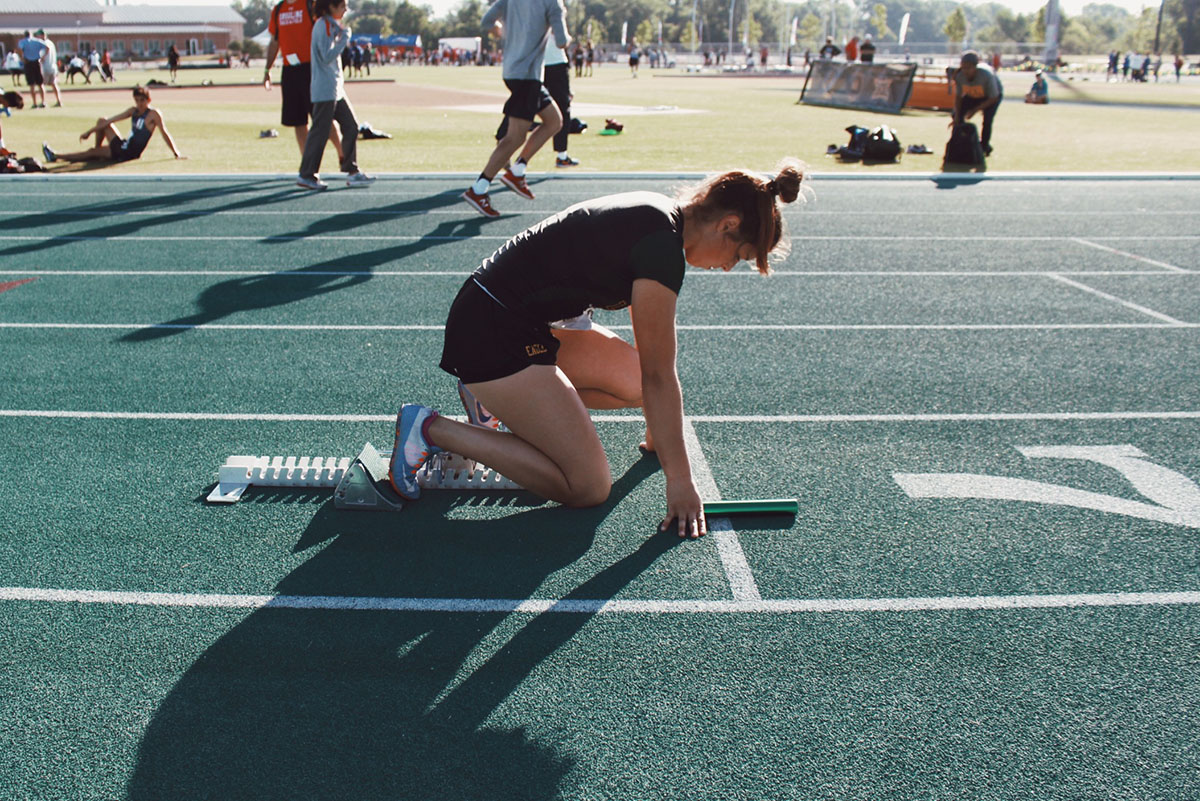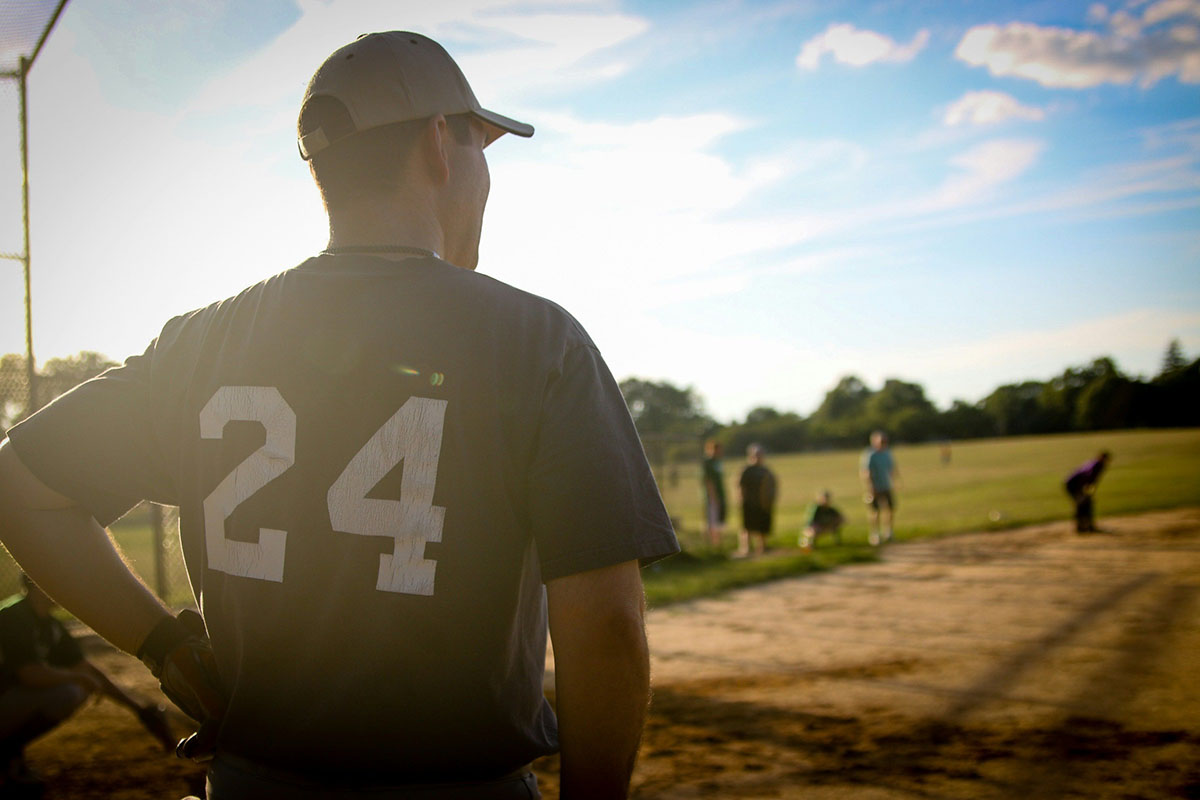When we think of sports leadership, we typically think of game strategy and motivational speeches—at…

Athletes and Eating Disorders: Why They’re Linked and How To Stay Safe
It’s no secret that participation in athletics can be great for both kids and adults. Sports can build self-esteem, keep you in physical shape, and create a sense of community and teamwork.
But it can also be a high-pressure environment with an emphasis on winning and personal performance. And as our culture becomes more and more focused on achievement, we’ve begun to place even more pressure on young people to excel at their sport and perfect their performance.
When that pressure is internalized, it can manifest as a hyper-awareness of physical shape and body weight. Combined with a constant drumbeat of diet-related messages and images, the risk of athletes developing an eating disorder increases significantly.
Why Are Eating Disorders Common in Sports?
There is evidence that eating disorders can run rampant especially amongst athletes in weight-sensitive sports like endurance, weight category, jumping events, and aesthetic sports like figure skating or ballet1.
And it’s far from just the youngest athletes who are impacted by eating disorders. One study of more than one thousand Division I collegiate athletes uncovered nearly 10 percent of female participants struggling with bulimia; another 10 percent reported experiencing binge-eating episodes weekly or more2.
The culture of a team is critically important – this includes both the coaches and team members. Positivity, support, and encouragement are imperative. Coaches or other adults who focus primarily on success and performance rather than the athlete as a whole person can do a lot of damage; even seemingly innocuous comments around weight or body shape can be harmful in certain environments.
The primary eating disorders are:
- Anorexia nervosa, characterized by distorted body image and food restriction;
- Bulimia, characterized by episodes of binge eating, shame, and subsequent purging through self-induced vomiting or the use of laxatives; and
- Binge Eating Disorder, also characterized by episodes of overeating and intense shame.
The risk factors for an eating disorder are the same for athletes and non-athletes – but athletes are more likely to be in situations where there’s higher stress and pressure around personal performance, nutrition, and their bodies.
Which Athletes Are Most at Risk of Eating Disorders?
Athletes are uniquely at risk of developing eating disorders, and some sports pose a higher risk than others. Aesthetically-judged sports, for example, like gymnastics, figure skating, ballet, and synchronized swimming invite more focus on the physical form.
And since these sports tend to be more popular with women, female athletes are affected at higher rates. They can also struggle with what’s called the female athlete triad. This condition includes disordered eating (or low energy), amenorrhea, and decreased bone density (osteoporosis)3. Treatment of this triad is complex, often involving multiple specialty care providers.
But this doesn’t mean males aren’t at risk – they are, especially with participation in sports that prioritize physique or involving weight limits or classes. Examples of these include wrestling, boxing, weight lifting, and rowing.
Sports that focus on individual athletes rather than the performance of a team as a whole can also be considered higher risk, like cross country, sprinting, bodybuilding, or diving.
And if athletes are facing the pressure of competition in combination with past negative experiences – low self-esteem, family dysfunction, a history of abuse – these conditions leave them even more open to developing an eating disorder.
Protecting Young Athletes From Eating Disorders
As a parent, you can help your young athlete deal with pressures and avoid eating disorders by modeling love and support, regardless of appearance or athletic performance! Let your children know that you value them for who they are, not what they can do or how they look. Promote a positive body image and lead by example by enjoying a healthy lifestyle of fun physical movement and nutritious foods.
Avoid making critical remarks about your own or others’ bodies, don’t comment on eating habits, and steer clear of diet talk. Focus on and stress health, fitness, and energy over a number on the scale.
You’ll also need to have as good an idea as possible of the kinds of influences surrounding your child. Try to talk with them regularly about things they’ve watched or read, and the messages they’ve received from friends, acquaintances, or social media.
Coaches and other adults who play leadership roles in sports organizations are important parts of keeping athletes mentally healthy. Make sure young athletes are participating on teams that model a positive, supportive culture.
Coaches and sports organizations should be informed and know how to spot the warning signs of eating disorder development, such as:
- Significant or noticeable fluctuations in weight
- Difficulty focusing (“brain fog”)
- Evidence of binge eating, like an excess of food wrappers
- Frequent trips to the bathroom after meals or other evidence of purging behaviors
- Changes in mood or social behavior
- Sudden and intense interest in the nutritional value of foods
- Food restriction or avoidance of entire categories of foods
The signs of eating disorders in an athletic environment can be tough to spot, but there are tools and techniques available to help.
Get Help From a Clinical Sport Psychologist
Eating disorders are serious mental health concerns with the potential for significant physical consequences. Don’t try to manage one on your own. If you suspect that you, your child, or a loved one is struggling, seek professional help as soon as possible. Therapy can happen in individual, group, or family settings, both inpatient and out.
Athletes who struggle with eating disorders can benefit from therapy with a qualified clinical sport psychologist. Because athletes face unique pressures and expectations, it’s most effective to seek treatment from a clinical sport psychologist who understands the environments they’re in.
The clinical sport psychologists at Amplify Wellness + Performance regularly treat eating disorders in athletes and their families. Start the conversation today.


